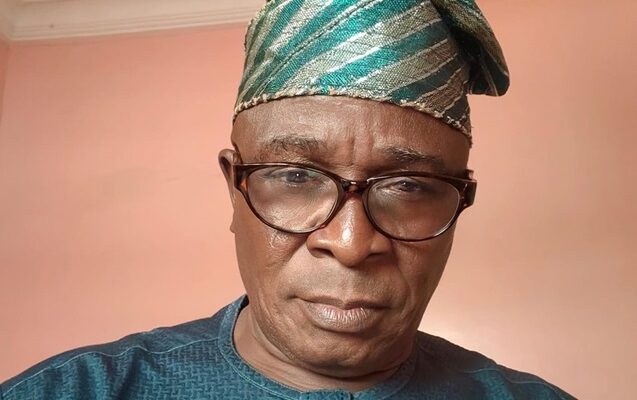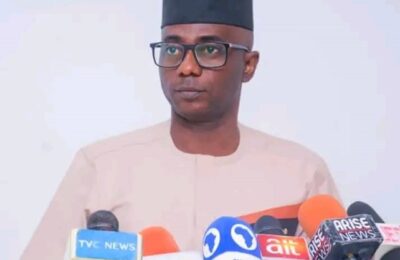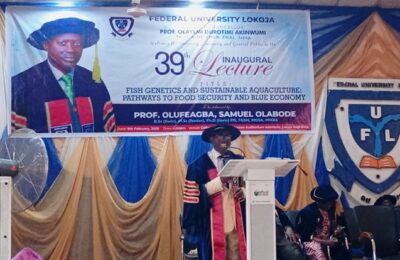By Musa Bakare.
In the realm of Nigerian politics, President Bola Ahmed Tinubu will remain a towering figure for several decades, admired by supporters and scrutinized by critics. Yet, amid the torrents of complaints, one undeniable truth persists: President Tinubu is working tirelessly, assiduously, and undauntedly for the benefit of Nigerians.
Best known for the transformative reforms he initiated between 1999 and 2007, which propelled Lagos state into the economic powerhouse of West Africa, President Tinubu’s legacy encompasses significant improvements in taxation, infrastructure, and urban development.
These reforms have often been cited as models for sustainable governance across the nation.
A master of political strategy, President Tinubu’s ascent to the presidency wasn’t accidental. His adeptness at coalition building and navigating Nigeria’s intricate political landscape has earned him the title of “Jagaban of Africa.”
His political acumen facilitated the consolidation of the All Progressives Congress (APC) as a dominant force, even amidst internal power struggles and external pressures.
While his supporters view him as a visionary leader, his detractors seem focused on identifying his flaws. As Nigeria faces daunting challenges ahead of the 2027 presidential election, ranging from inflation and infrastructure deficits to issues of insecurity and ethnic tensions, millions of Nigerians undoubtedly harbor hope in the renewed hope agenda that his administration has set forth.
At the heart of President Tinubu’s presidency lies economic reform. His administration has prioritized investment friendly policies aimed at creating a conducive environment for enterprises and attracting foreign direct investment. These efforts intend to diversify the economy while expanding employment opportunities, particularly for the youth.
Security has similarly been a focal point. Under President Tinubu’s leadership, Nigeria has experienced significant improvements in internal stability. Incidents such as school abductions, terrorist jailbreaks, and railway bombings, which once dominated headlines, have seen substantial declines.
In Southern Kaduna, once beset by violent conflicts, a newfound calm has emerged. In the Southeast, the infamous Monday sit at home orders are receding, with over 100 police stations that were previously shut down during previous administrations now reopened.
The Niger Delta, historically a center of militancy, is witnessing the gradual establishment of peace initiatives and economic inclusivity. Remarkably, oil theft has plummeted below 2%, and new investments, including a federal polytechnic in Ogoniland, signal a long term commitment to development. Furthermore, the long delayed environmental cleanup in the region has commenced.
These initiatives yield tangible results. Nigeria’s daily crude oil production has soared from 1 million to 1.7 million barrels, allowing the country to meet and exceed its OPEC quota for the first time in over a decade.
The economic statistics tell a compelling story. Reports indicate that in just two years, Nigeria’s rebased Gross Domestic Product (GDP) surged from ₦269.29 trillion to ₦372.8 trillion, a remarkable increase of $67 billion.
This growth stems from strict fiscal discipline and the alleviation of significant revenue leakages, such as the Central Bank of Nigeria’s closure of the Binance crypto loophole, previously responsible for $20 billion in annual capital flight. This decisive move restored much required confidence in the naira and the overall economy.
The international community is taking notice of these developments. Notably, on July 29, 2025, the International Monetary Fund (IMF) adjusted Nigeria’s economic growth forecast upward from 3.0% to 3.4%.
Simultaneously, the administration has succeeded in reducing Nigeria’s total debt from $113.7 billion, what President Tinubu inherited from the Buhari era to $97.1 billion today.
These achievements are not mere abstractions; they have concrete implications that is resonating through the daily lives of Nigerians, impacting food prices, foreign exchange rates, job creation, and investor sentiment.
Equally pivotal is Tinubu’s commitment to national unity. He has consistently advocated for inclusive governance and stakeholder engagement, promoting open dialogue and reconciliation aimed at mending the fractures dividing the country along ethnic, regional, and religious lines.
As Nigeria anticipates the rollout of the Tax Reform Bill next year, expectations are high. Economists forecast it will unleash unparalleled economic momentum through the broadening of the tax base and increased government revenue for infrastructure development and social welfare programs.
President Tinubu’s narrative is still unfolding as the nation approaches the 2031 ending of his second term in office. What remains crystal clear to Nigerians however is that he is focused, resilient, and steadfastly committed to governance amid strident criticisms, undaunted by the noise surrounding his administration, rooted in a clear vision.
Ahead of the 2027 presidential election, Nigerians are keenly observing. They will assess his performance not through emotion but based on tangible outcomes.
– Musa Asiru Bakare, a foundation member of the All Progressives Congress (APC), member, Tinubu Support Group (TSG), a political analyst writes from Lokoja, the Kogi state capital.




